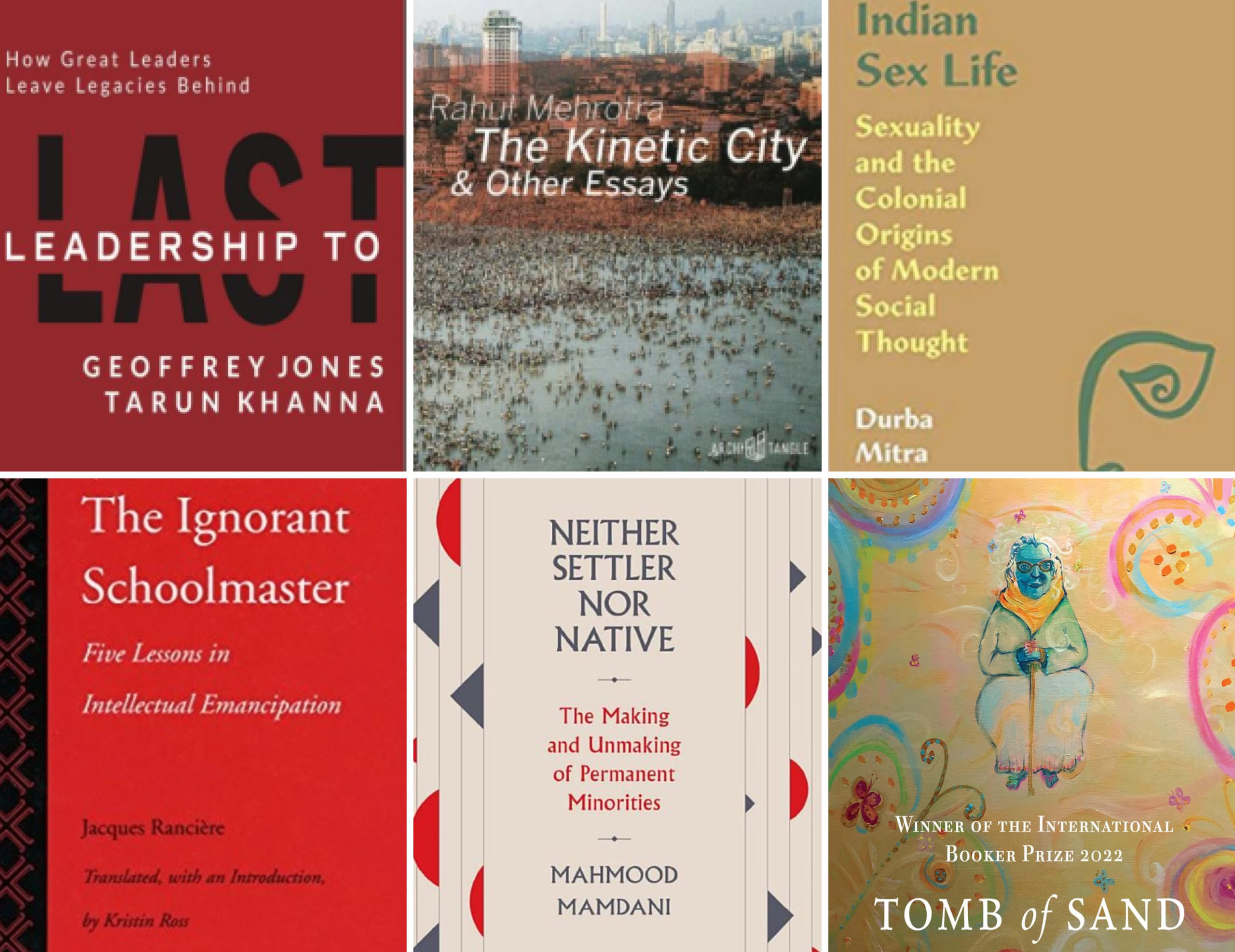
It’s summer here on the Harvard campus and a great time to catch up on reading. We caught up with some of Mittal Institute faculty members and affiliates to see what’s on their reading list and to hear more about their favorite reads. We would also love to hear from the Mittal community about your reading recs, so head over to Twitter or Instagram and tag @MittalInstitute with the hashtag #MittalReads. Let us know if you end up reading any of these recommended books, too!
Doris Sommer, Mittal Institute Steering Committee Member
Ira and Jewell Williams Professor of Romance Languages and Literatures, and African and African American Studies, Harvard University
I read slowly, and have several writing assignments, so I won’t extend this list. Hope you will accompany me so that we can talk!
Jacques Ranciere, The Ignorant Schoolmaster : Five Lessons in Intellectual Emancipation (1991)
I have read this book with admiration and recommend it to my colleagues and friends; they say they will read it, but the title apparently sounds light rather than revolutionary. Well known as a political philosopher, Ranciere relaxes his style here and tells the surprising story of an 18th C philosophy teacher, exiled in Belgium where he can’t speak Flemish. Jacotot’s Diary and Ranciere’s narrative voice blend to discover that good teaching is facilitation, that explanation undermines the lesson, and that people are already free. Ranciere’s resentment of his own authoritarian teacher, marxist Althusser, comes through without mentioning the feeling of betrayal that students felt at the 1968 barricade when the master refused to step down and join ranks. The point of Ranciere’s book and jacotot’s lessons is that students are already free; they need not wait for a teacher to lead them to liberation. This approach is an inspiration for my new course: “Ignorant” Schoolmasters”and Experts.
Maria Montessori, The Montessori Method (1912)
In a similar spirit to re-reading Ranciere with colleagues, I want to encourage people to Read Montessori’s book. Even my very educated friends at Harvard don’t know that she developed her method in the slums of Rome, that she was a medical doctor who felt compassion for the “idiot” children in insane asylums and found that she could teach them to read and write. As a champion of children who live with adversity, Montessori is now taken – co-opted – as an option for prosperous families that can pay for superior education. Why have democratic approaches to education been consistently thrown under school buses?
Gabriel Garcia Marquez, Clandestine in Chile: the Adventures of Miguel Littin, (1986)
I just discovered this book by the most visible writer in Latin America. It’s about a filmmaker who returns to Chile under Pinochet, disguised, to document what has happened in his country over the exile years. This is the kind of history written by a master storyteller that I find irresistible. Can’t wait!
___________________________
Ali Asani, Mittal Institute Steering Committee Member
Professor of Indo-Muslim and Islamic Religion and Cultures, Department of Near Eastern Languages and Civilizations
Mahmood Mamdani, Neither Settler nor Native: The Making and Unmaking of Permanent Minorities (Belknap Press, 2020)
It is a thought provoking analysis of minority-majority relations in contemporary nation states.
__________________________
Tarun Khanna, Mittal Institute Faculty Director
Jorge Paulo Lemann Professor, Harvard Business School
Kim Stanley Robinson, The Ministry for the Future
Even though I don’t usually like science fiction, it is a window into imaginations about the future. Nothing shapes the future more than our collective imaginations!
Alex Haley, Roots
I plan to reread Roots, just because I recall it being magisterial.
Read more summer reading recommendations from Prof. Khanna on his Substack page and sign up for his mailing list!
__________________________
Vidya Subramanian, Mittal Institute Raghunathan Fellow
My recommendations are all books I hope to read this summer.
Geetanjali Shree, Tomb of Sand (translated by Daisy Rockwell)
The first is an obvious one — the 2022 Booker Prize winner and the first novel translated from an Indian language to ever win — Tomb of Sand, written by Geetanjali Shree and translated by Daisy Rockwell. I hope to read it in the original Hindi as Ret Samadhi. I’m embarrassed to admit that it’s been quite a while since I’ve read a book in Hindi, and I think it’s time to remedy that!
James S. A. Corey, Abbadon’s Gate
I’m a fan of the science fiction TV Show The Expanse (that ended in January this year). I began reading the book series the show is based on last year, and I’ve now read two books of the series of novels by James S. A. Corey (a pen name used by the duo Daniel Abraham and Ty Franck). I strongly recommend the first two Leviathan Wakes and Caliban’s War (in my opinion, even if you’ve seen the TV show, they add so much detail and depth to it that it’s super fun to read!). I’m looking forward to reading at least one more (Abbadon’s Gate) this summer, and if I can, Cibola Burnas well!
Don’t forget to let us know what you are reading this summer! Head to Twitter or Instagram and tag @MittalInstitute with the hashtag #MittalReads.
